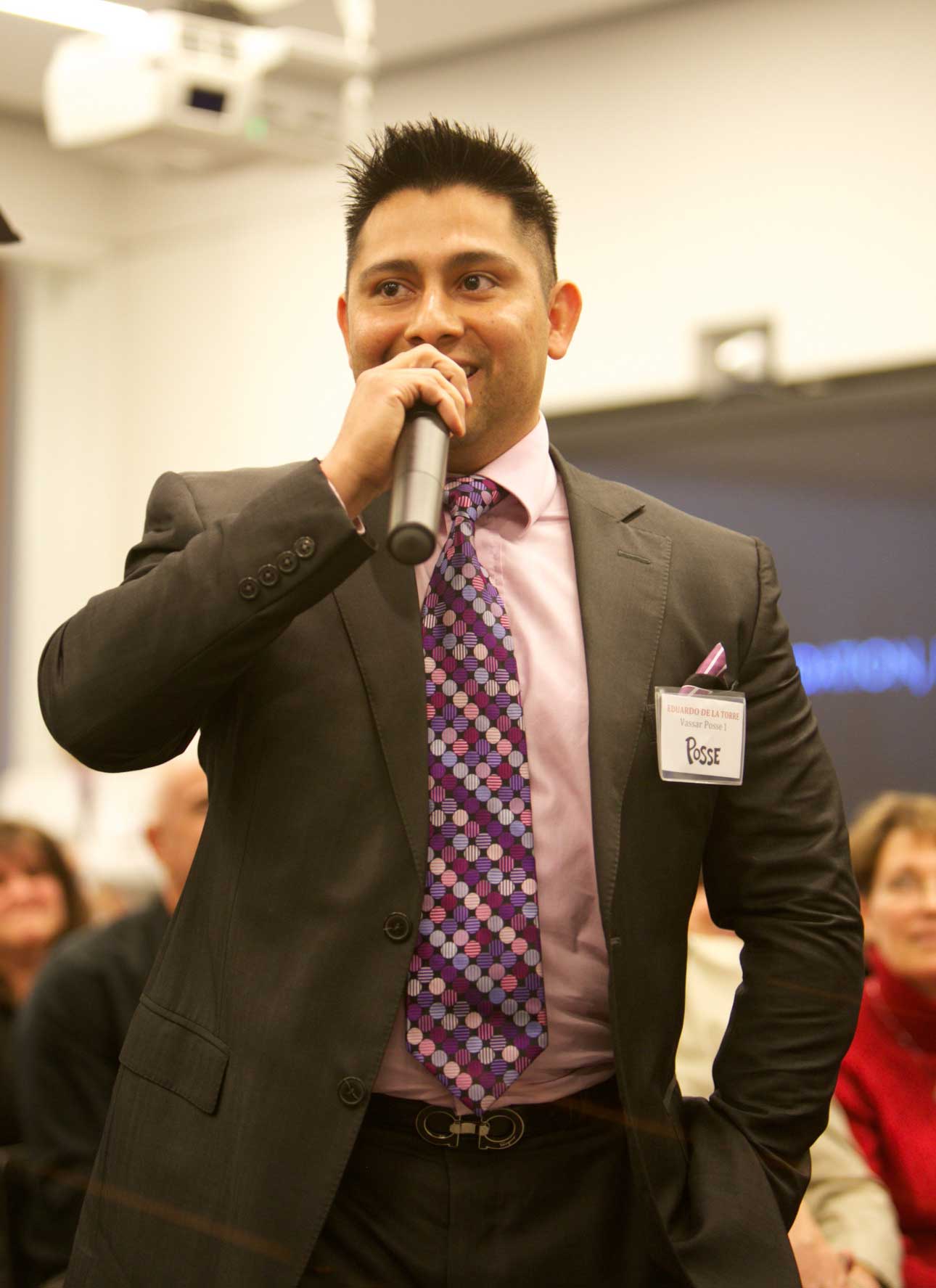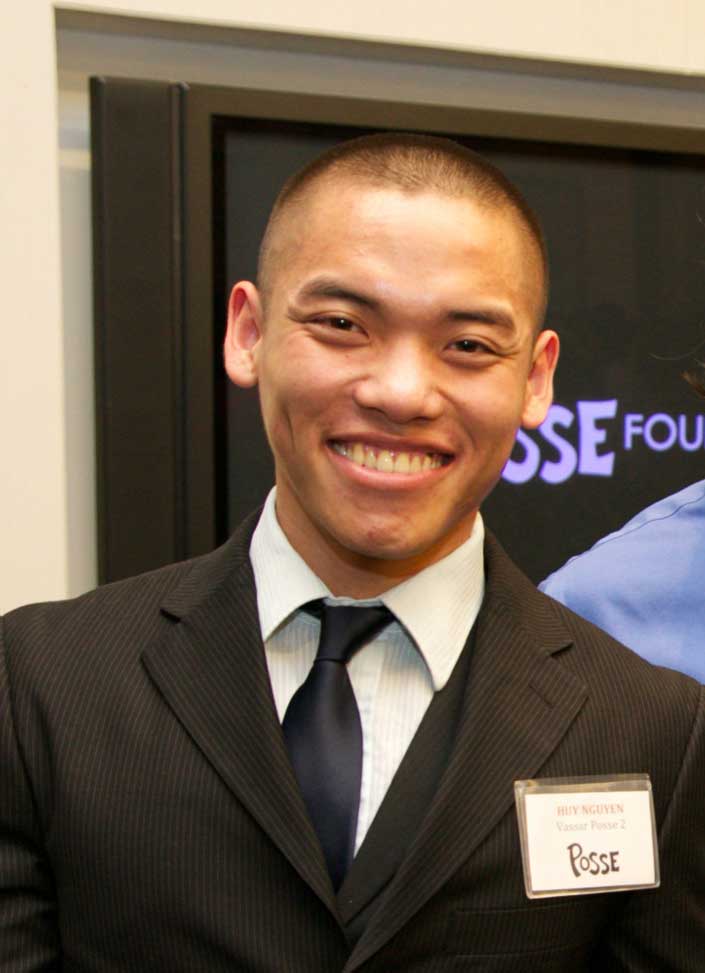Vassar Veterans PosseThe Lingering Influence of a Vassar Education
Vassar Veterans PosseThe Lingering Influence of a Vassar Education
After graduating with Vassar’s class of 2017, Eduardo De La Torre returned home to Houston, where he is now founder of DVG Financial, a firm that provides low-cost loans and teaches financial literacy to discharged veterans, a group particularly vulnerable to predatory lenders during the often-protracted period when they are waiting for their Veterans Affairs benefits to begin. Perhaps unexpectedly given his trajectory, his keenest classroom memories are of a course that he took with Associate Professor of German Studies Jeffrey Schneider called “Sex Before, During, and After the Nazis.”

“It changed my assumptions about anything I thought,” he says. “There was the shock that so many things you might assume, about standards, about science, aren’t what you think at all. You start understanding the science, and Western philosophy starts to make sense, and you see how the corruption of science can be so dangerous. That class has shaped and driven my worldview.”
Nicole Leadenham ’18 is pursuing her master’s degree in clinical social work at Smith College, taking an accelerated program that she started just four days after graduating from Vassar. “Literally the first week, I was feeling so grateful for the academic expectations that are held at Vassar,” she says, “because people coming in after taking a break were wiped out by the program. At Vassar I learned how to prioritize. Here it’s like finals every five weeks. Coming out of Vassar I have critical-thinking skills I developed that I didn’t have before. I didn’t think I would retain so much, but it’s really cool that I am using it.”
Leadenham says a class with Associate Professor of Education Colette Cann called Race, Representation, and Resistance gave her, as “a very white-passing Latina, an anti-racism framework and a good foundation for the social work I am doing.”
Six weeks after he graduated from Vassar, Huy Nguyen ’18 started full-time at the Duke University Fuqua School of Business, where he has just earned his master’s degree in management studies, graduating in the top 10 percent of his class. He is now working as a senior associate in the Finance and Development Program at State Street in Boston. As a math major at Vassar, he recalls, “I had a lot of quantitative skills I had learned, all this knowledge, that was brought out further at Fuqua.”
“The military gave me a day-to-day foundation of staying physically healthy and mentally healthy. Vassar gave me everything else.”—Alexander Harrison ’19
Nguyen also took several language courses at Vassar, and he says what stuck with him the most was a language he had not originally intended to take: “The more I learned German, the more I liked about it. That led to a summer internship, where I had the opportunity to go to Berlin and work as an intern in the world’s fourth largest economy. That in turn opened my eyes to the world of international business, and led to my master’s program at Duke.”
Alexander Harrison ’19 received his diploma this past spring, but had already started working as a global markets analyst at RBC Capital Markets in New York, a long way from south Texas, where he grew up. Since he actually completed his Vassar classes last December, he already has an alumnus’s perspective.

“I am very much a product of Vassar College,” he says. “I would not be who I am today without it. The military gave me a day-to-day foundation of staying physically healthy and mentally healthy. Vassar gave me everything else, from my work ethic to time management, and it’s a huge advantage.
“The infantry is stereotypically masculine, and then I came into this environment where I was challenged to think differently—my freshman writing course was on Gender as a Fluid Concept. At a school where everyone is so open-minded, I was kind of forced to be, too, to think about other people differently.”
Harrison also mentions the late Professor Marque Miringoff’s Health and Public Policy course that included a discussion on how the AIDS epidemic was handled from political and economic perspectives. “That challenged my thinking,” he says. “I was leaning toward economics, but then I made the transition to STS (Science, Technology, and Society).”
Harrison says that because he is a Vassar vet, “A few months out, I feel I’m prepared for what I’m doing. Vassar’s name opens certain doors, and combined with the U.S. military, it makes for an interesting juxtaposition when they see your resume. People say ‘huh!’ It catches their attention.”